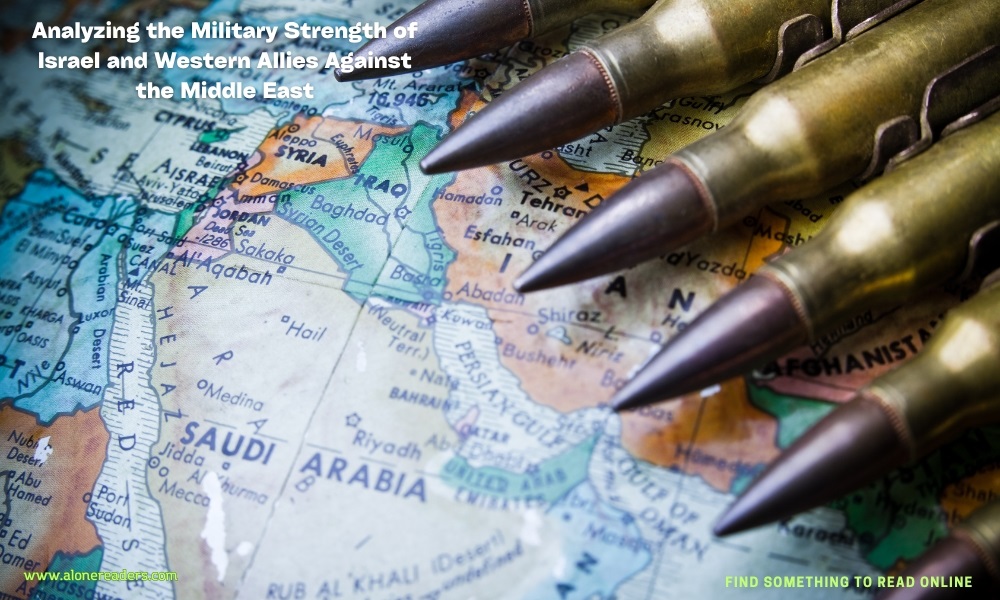
In recent years, geopolitical tensions in the Middle East have frequently raised questions about the military capabilities and alliances in the region. A key focal point of these discussions is whether Israel, supported by its Western allies, possesses enough military strength to withstand a conflict against an alliance of Middle Eastern countries, including powers such as Iran and Saudi Arabia. This analysis explores various dimensions of military capabilities, strategic alliances, and regional dynamics to provide a comprehensive overview.
Israel's military, known as the Israel Defense Forces (IDF), is renowned for its advanced technology, rigorous training, and significant experience in both conventional and asymmetric warfare. The country has a well-developed air force, equipped with state-of-the-art aircraft like the F-35 stealth fighters, and a missile defense system that includes the Iron Dome, David's Sling, and the Arrow system. Israel's military strategy also heavily relies on intelligence capabilities, with substantial investments in surveillance, reconnaissance, and cyber warfare.
Israel's strategic alliances with Western countries, particularly the United States, significantly enhance its military posture. The U.S. provides Israel with economic and military aid, advanced weapons systems, and strategic military cooperation. Other Western nations, including members of NATO, also engage in various degrees of military collaboration with Israel, ranging from joint exercises to intelligence sharing.
Iran and Saudi Arabia are considered regional heavyweights with substantial military resources. Iran's military strategy emphasizes asymmetric warfare, utilizing proxy groups across the region and developing a significant arsenal of ballistic missiles. Conversely, Saudi Arabia has invested heavily in purchasing state-of-the-art Western military equipment and is one of the world's largest arms importers. The kingdom's military strategy is primarily focused on air power and defensive systems to protect its oil infrastructure.
A hypothetical conflict involving Israel and its Western allies against a coalition of Middle Eastern nations including Iran and Saudi Arabia would likely be complex and multifaceted. Factors to consider include the geographical scope of the conflict, the objectives of each side, and the potential involvement of other regional and global powers. Such a conflict could also have significant political and economic impacts globally, affecting oil prices and international relations.
The Middle East is a region of shifting alliances and enmities. Notably, the relationships among Middle Eastern countries are not monolithic. For instance, Saudi Arabia and Iran are regional rivals, often at odds politically and religiously. The involvement of other countries in the region would depend significantly on the specific circumstances and triggers of the conflict.
In any potential conflict, technology and tactics would play crucial roles. Israel's technological edge, particularly in areas like cyber warfare and missile defense, provides it with a significant strategic advantage. However, the capabilities of Iran in drone technology and asymmetric tactics, along with Saudi Arabia's modern air force, would pose considerable challenges.
Any conflict in the Middle East would not only be fought on the battlefield but also in the arena of international law and global public opinion. Issues such as civilian casualties, the use of prohibited weapons, and territorial integrity would be critically important. The response of international organizations, human rights bodies, and global powers would influence the conduct and consequences of the conflict.
Conclusion
Assessing whether Israel and its Western allies are "strong enough" to handle a conflict with Middle Eastern nations including Iran and Saudi Arabia involves a complex analysis of military capabilities, regional alliances, and geopolitical strategies. While Israel, with the backing of Western powers, possesses significant military strength, the dynamics of the Middle East make any conflict uncertain and potentially devastating on multiple fronts. The resolution of such conflicts would ideally be pursued through diplomatic means rather than military engagements, focusing on regional stability and peace.